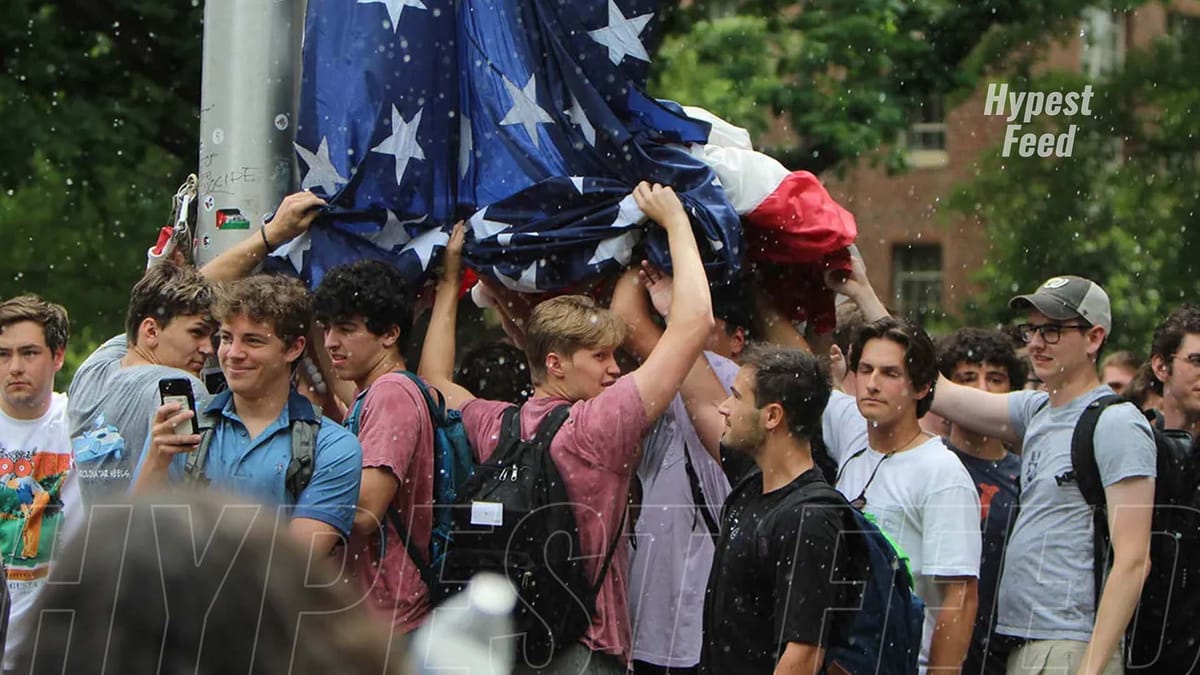Amidst a backdrop of heightened social and political tensions, a group of demonstrators took down the American flag during a protest on the campus of the University of North Carolina (UNC). The removal of the flag served as a symbolic gesture, highlighting the grievances and frustrations of the protesters. The act drew attention not only from the local community but also from national media outlets, sparking debates about the appropriate expression of dissent and the significance of national symbols in public discourse.
Eyewitnesses described a scene of fervent activism as protesters rallied around the flagpole, chanting slogans and waving banners. The decision to remove the flag was met with both support and criticism, reflecting the diverse perspectives within the UNC community and beyond.
The protest itself was part of a larger wave of demonstrations across the United States, driven by a range of social and political issues. From racial injustice to economic inequality, protesters sought to amplify their voices and demand change through collective action.
In the aftermath of the flag's removal, university officials and student leaders grappled with how to respond to the incident. While some condemned the action as disrespectful and divisive, others viewed it as a legitimate form of protest protected by the First Amendment.
The incident reignited debates about the role of symbols in public discourse and the boundaries of free speech on college campuses. As the UNC community reckoned with the aftermath of the protest, discussions unfolded about the importance of fostering an inclusive and respectful environment for all students, while also upholding the principles of free expression and civil discourse.
Moving forward, the incident served as a catalyst for reflection and dialogue about the complex intersection of patriotism, protest, and freedom of speech in American society. As the nation grapples with pressing social and political challenges, the events at UNC underscored the need for constructive engagement and a commitment to understanding diverse perspectives in pursuit of a more just and equitable future.



Member discussion: